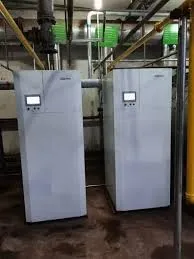- Afrikaans
- Albanian
- Amharic
- Arabic
- Armenian
- Azerbaijani
- Basque
- Belarusian
- Bengali
- Bosnian
- Bulgarian
- Catalan
- Cebuano
- China
- China (Taiwan)
- Corsican
- Croatian
- Czech
- Danish
- Dutch
- English
- Esperanto
- Estonian
- Finnish
- French
- Frisian
- Galician
- Georgian
- German
- Greek
- Gujarati
- Haitian Creole
- hausa
- hawaiian
- Hebrew
- Hindi
- Miao
- Hungarian
- Icelandic
- igbo
- Indonesian
- irish
- Italian
- Japanese
- Javanese
- Kannada
- kazakh
- Khmer
- Rwandese
- Korean
- Kurdish
- Kyrgyz
- Lao
- Latin
- Latvian
- Lithuanian
- Luxembourgish
- Macedonian
- Malgashi
- Malay
- Malayalam
- Maltese
- Maori
- Marathi
- Mongolian
- Myanmar
- Nepali
- Norwegian
- Norwegian
- Occitan
- Pashto
- Persian
- Polish
- Portuguese
- Punjabi
- Romanian
- Russian
- Samoan
- Scottish Gaelic
- Serbian
- Sesotho
- Shona
- Sindhi
- Sinhala
- Slovak
- Slovenian
- Somali
- Spanish
- Sundanese
- Swahili
- Swedish
- Tagalog
- Tajik
- Tamil
- Tatar
- Telugu
- Thai
- Turkish
- Turkmen
- Ukrainian
- Urdu
- Uighur
- Uzbek
- Vietnamese
- Welsh
- Bantu
- Yiddish
- Yoruba
- Zulu
Nov . 17, 2024 01:10 Back to list
Properties and Applications of Ductile Cast Iron Pipes for Modern Infrastructure
Ductile cast iron pipe, an innovative material widely used in the water and wastewater industries, is renowned for its exceptional strength and durability. Developed in the1940s as a modern alternative to traditional gray cast iron, ductile iron benefits from the incorporation of small amounts of alloying elements, which contribute to its enhanced ductility and tensile strength. This unique combination of properties makes ductile iron an ideal choice for applications that require resilience against pressure, corrosion, and other environmental stressors.
One of the key advantages of ductile cast iron pipes is their ability to withstand high pressures. This characteristic is essential for water distribution systems and sewage transport, where pipes are subjected to varying levels of stress due to dynamic fluid flow and external soil loads. The flexibility inherent in ductile iron allows these pipes to absorb impacts without cracking, significantly reducing the risk of failures that can lead to costly leaks or ruptures.
In addition to high strength, ductile cast iron pipes are also known for their longevity. With a lifespan that can exceed 100 years when properly maintained, they present a cost-effective solution for municipalities and industries investing in infrastructure. Unlike certain plastic or concrete alternatives, ductile iron does not degrade or deter from its mechanical properties over time, thus ensuring consistent performance throughout its service life.
ductile cast iron pipe

Corrosion resistance is another critical feature of ductile cast iron pipes. By applying protective coatings and utilizing internal linings, these pipes can be effectively safeguarded against aggressive environmental conditions, such as acidic soils or saltwater exposure. This level of protection helps to extend the overall lifespan of the pipeline and minimizes maintenance needs, leading to further cost savings.
Furthermore, ductile iron pipes are sustainable options within the construction and engineering sectors. At the end of their useful life, they can be recycled without losing their core properties, contributing to a circular economy. This aligns with increasing global emphasis on sustainability and environmental responsibility, making ductile cast iron pipes a favored choice for modern infrastructure projects.
In conclusion, ductile cast iron pipes offer a multitude of advantages, including high strength, durability, corrosion resistance, and sustainability. These properties make them exceptionally well-suited for critical applications in water management systems. As municipalities and industries continue to seek reliable and long-lasting solutions for their infrastructure needs, the demand for ductile cast iron pipes is likely to remain strong, cementing their position as a key material in the realm of civil engineering and construction.
-
Premium Cast Iron Water Main Pipe: Durable, Corrosion-Resistant
NewsAug.03,2025
-
Durable Cast Iron Water Mains | AI-Optimized Systems
NewsAug.02,2025
-
High-Efficiency Propane Boiler for Baseboard Heat | Save Energy
NewsAug.01,2025
-
Premium Source Suppliers for Various Gray Iron Castings
NewsJul.31,2025
-
Durable Cast Iron Water Main Pipes | Long-Lasting
NewsJul.31,2025
-
High-Quality Cast Iron Water Main Pipe for Durable Infrastructure
NewsJul.30,2025


